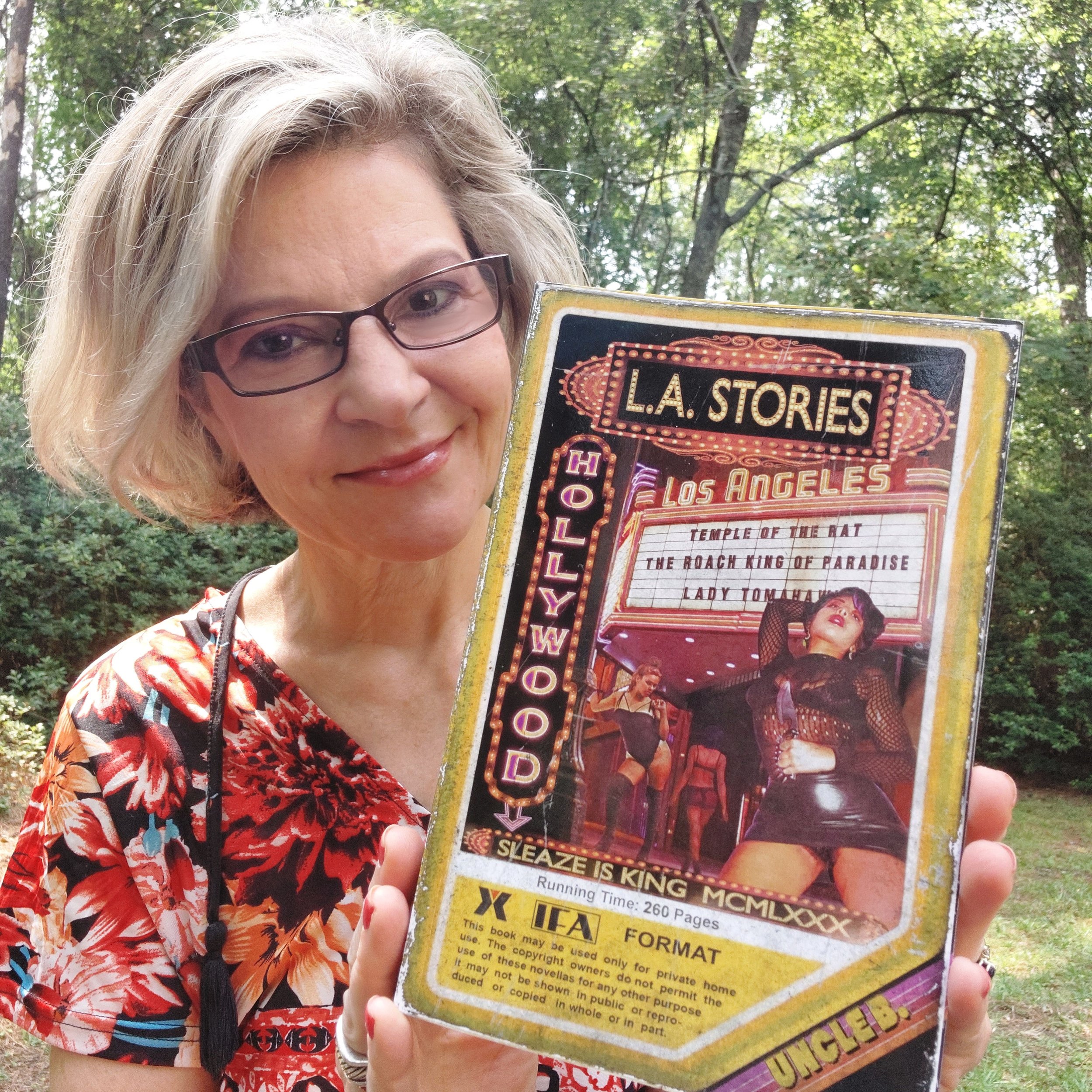Anxious Nothings, Volume 1 (Anxiety Press) is a collection of short fiction, non-fiction, poems about sex, and, as the title suggests, the attendant anxiety often surrounding it in all its forms. The introduction by editor and publisher Cody Sexton, places the collection into context with an explanation of what inspired this volume, involving a teen’s discovery of Hustler Magazine, among other things. It’s dedicated to Larry Flynt and porn impresario Al Goldstein, and while the works collected here are wide ranging in tone and topic, the intro makes for a center the way a metal framework within a clay sculpture holds it all together.
Before I read this book, I’d stumbled onto The People Vs. Larry Flynt on cable, the scene where Larry (played by Woody Harrelson) returns to the offices of Flynt Publications for the first time following his shooting. He wheels into his office, much to the chagrin of the suits looking to tone things down, and instructs the receptionist to announce on the loudspeaker, “The pervert is in the building.” This book seems to suggest the pervert is indeed in the building, and to paraphrase Walt Kelly’s comic possum, Pogo, “We have met the pervert, and he is us.”
If sexuality is an integral part of being human, and if it really does take all kinds to make the world go around, every one of us could be considered perverts to some degree, seen through the lenses (or technological keyholes) of the censorious forces present in society, especially in the U.S., which has a much more puritanical culture than the land of “freedom and liberty” is usually willing to admit.
Depending on one’s personality and mindset, these works may prompt laughter, (Grayson Lagrange’s “Feeding the Ducks” and Jason Gerrish’s “Slaw”), a sense of horror or dread (Paula Deckard’s “Girl’s End”), disgust (Sebastian Vice’s “Ass Eating”), and even pity tempered with cool satisfaction that the bad guys/chicks in the story got what was coming to them (Paige Johnson’s “Ruffled Feathers” and Kristin Garth’s “Jungle Rules”). Snacking on this collection of literate pornographic bon-bons is a liberating experience in many ways, acknowledging the pervert within one’s own psyche, and meeting it with a high five of recognition thus subverting any authority threatened by the anarchic freedom of thinking for oneself, reading what one pleases, and engaging in life, liberty and the pursuit of pleasure between two—or more—consenting adults.
The transgressive behavior found in Anxious Nothings is unfiltered and unadulterated save what judgements the reader brings to it, which gives each piece in the collection certain qualities of a Rorschach test administered in a quiet corner at a wild party. No therapist here, though, only the intermittent palate-clearing snippets of sage words by the likes of the Marquis de Sade, Karl Marx, Mark Twain, and Gertrude Stein, with text graphics for these made to look like cut-out ransom notes, heightening the illicit nature of the content and grounding it within the wisdom that there is nothing that threatens you from between these covers, only modern stories, poems and essays about age-old cornerstones of human nature. The characters herein may be anxious, but you, dear reader, need not be. You are in good hands. You are human. Fear not.
However.
Right before I wrapped up this review, I was flipping through channels and again stumbled upon The People Vs. Larry Flynt. This time, it was near the ending, where Larry wants to take his case against Jerry Falwell to the U.S. Supreme Court. Larry’s lawyer, Alan Isaacson (played by Edward Norton), resists, afraid that Larry will make a mockery out of an appearance in front of such of an august institution, but Isaacson finally acquiesces, and prevails. In light of recent rulings, I have to wonder what the future now holds for free speech in America, and for other freedoms most have long taken for granted.
President Franklin D. Roosevelt famously said that we have “nothing to fear, but fear itself,” yet now more than ever we seem to be a nation in the grip of fear and loathing. Writing hobbled by fear, tempered by prevailing opinion about what is “acceptable” makes for a lukewarm experience through which nothing is learned, gained, no fun is had, and time is wasted. This one is worth the time, whether as a left-handed bon-bon of ballsy entertainment or thought-provoking starting point for a conversation with yourself about why something makes you feel the way it does. This is a strange, bold book for even stranger times, a post-modern Whitman’s Sampler of fearless writing. It is a literary anthology that contains unapologetic, unvarnished, explicit sexual content. You may love it, or you may be offended, but if books like this get banned, you’ll never know.
Be bold. Be fearless and support others who are.
Freedom depends on it.







